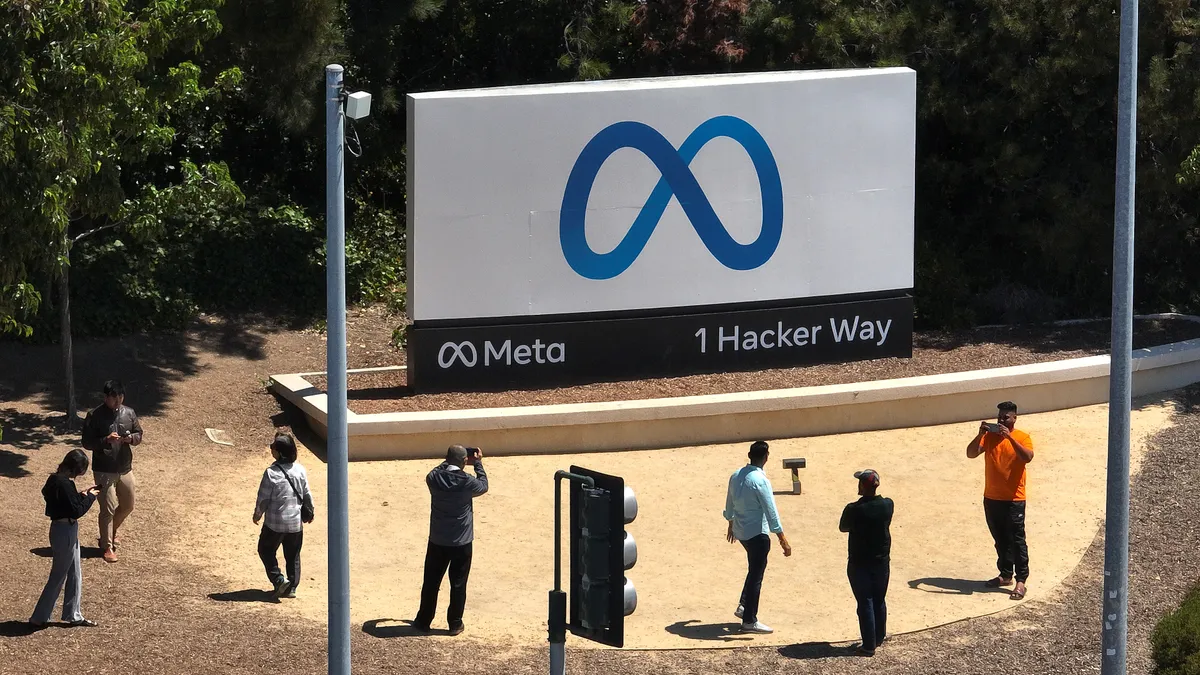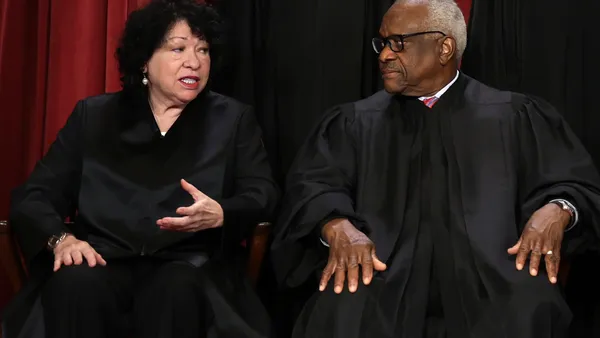Dive Brief:
- A White lighting technician filed suit against Meta Platforms, the Association of Independent Commercial Productions and two film production companies Sept. 5 over a diversity initiative that allegedly seeks to hire Black and Indigenous individuals and other people of color (BIPOC) for commercial film production jobs at the exclusion of White candidates.
- Per the complaint in Harker v. Meta Platforms, Inc., et al, the AICP obtains funding and support from clients, such as Meta, for a paid, apprentice-type diversity program, “Double the Line” (DTL), which allows production companies to hire BIPOC candidates with no industry experience to work alongside experienced employees to learn the business in a “real, hands on way.” DTL’s alleged purpose is to “push forward a demographic shift” and, the complaint argues, “to stigmatize, target, harm ... and intentionally discriminate against white people ... because of their race, color and national origin.”
- According to the lawsuit, Meta, AICP and the other defendants violated Title VII of the Civil Rights Act of 1964, 42 U.S.C. Section 1981 (prohibiting race discrimination in the making and enforcing of contracts) and the New York Human Rights Law. The plaintiff was hired to work as an electrician on a commercial being made for Meta, the complaint said. One of the gaffers (the highest-level electrician on the crew) allegedly had no experience, was hired under the DTL program and made more than the plaintiff did, despite his nearly 30 years in the business. He claimed that after he inquired about her, he was kept out of other DTL-designated positions and not rehired for later projects.
Dive Insight:
The lawsuit against Meta is the latest challenge to workplace diversity initiatives following the U.S. Supreme Court’s June ruling striking down race-conscious college admissions.
In August, the conservative America First Legal Foundation, which represents the plaintiff in the Meta suit, sued Target on behalf of a shareholder over the retailer’s assessment of its ESG (environment, social and governance) and DEI risks after the fallout from Target’s sale of LGBTQ-themed products, according to a CNBC report.
Also, in August, a group of current and former Gannett employees sued the media company for reverse discrimination they claimed grew out of a 2020 policy aiming to have newsrooms reflect the diversity of the communities they cover, Reuters reported. The employees claimed they were fired or passed over for promotions in favor of less-qualified women and minorities, the report said.
However, not all challenges succeed. A federal court in Washington recently dismissed a purported shareholder’s suit against Starbucks based on a program linking some parts of executive compensation with the fulfillment of DEI goals. The court found the plaintiff, another conservative group, the National Center for Public Policy, was not a proper representative of shareholder interests and that the complaint was intended to hurt Starbucks’ business.
While the SCOTUS ruling isn’t directly applicable to private sector employers, it does reaffirm long-standing law that employers generally may not take protected characteristics into account when making employment decisions, an attorney previously told HR Dive.
In the wake of the ruling, employers should reassess their policies and ensure their practices don’t have a disparate impact between people in the workplace or other discriminatory results, experts have said.
HR teams also have a number of tools they can still use to further DEI goals, such as conducting an availability analysis and performing outreach to encourage applications from candidates of all backgrounds, according to one expert. Employers should also focus on fairness, inclusion and respect and make sure their practices reflect these values every day, the expert said.
Over the next decade, competitive, strong workforces will be built on strong cultures that make them an employer of choice for underrepresented groups, an amicus brief argued to the Supreme Court in the college admissions case.
A report released last week by Eagle Hill Consulting confirms that diversity helps attract top talent. More than half of the U.S. workers who responded to the Eagle Hill survey said DEI initiatives play a key role in their decision about where to work.











